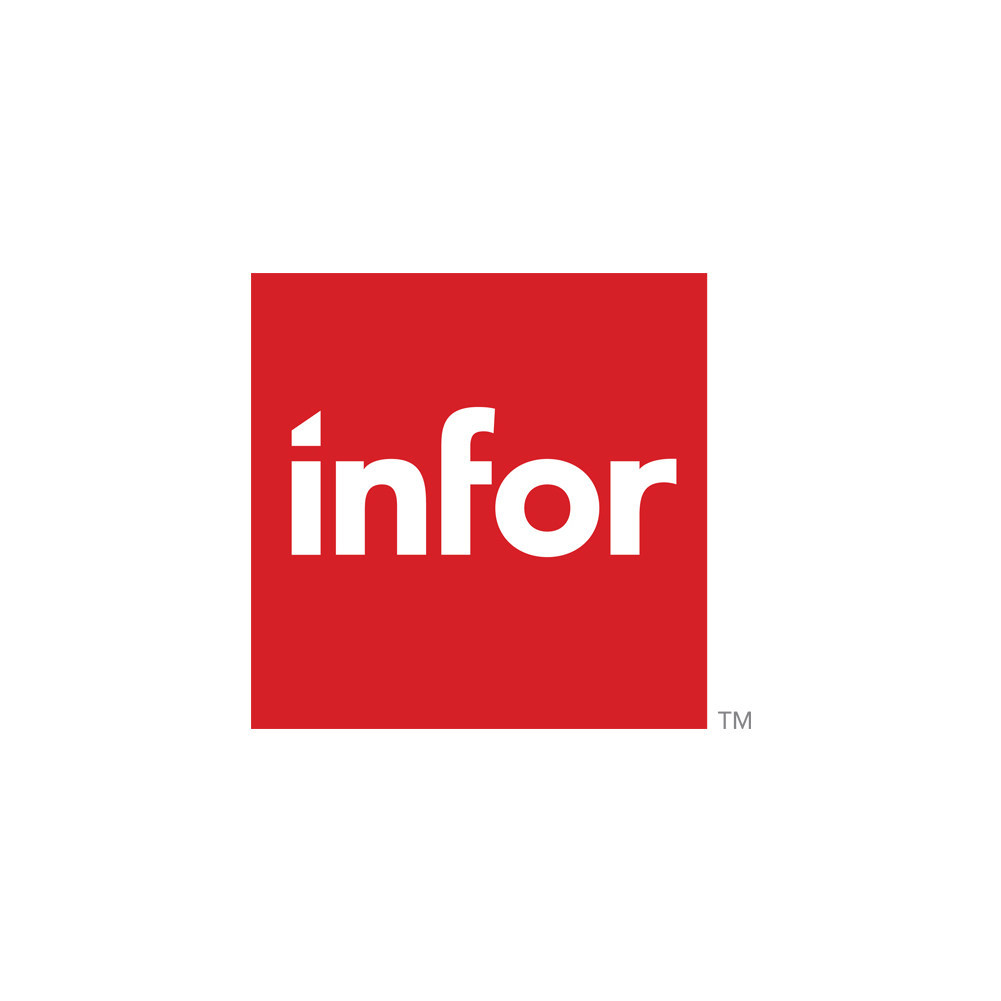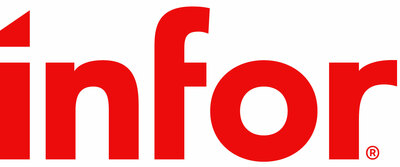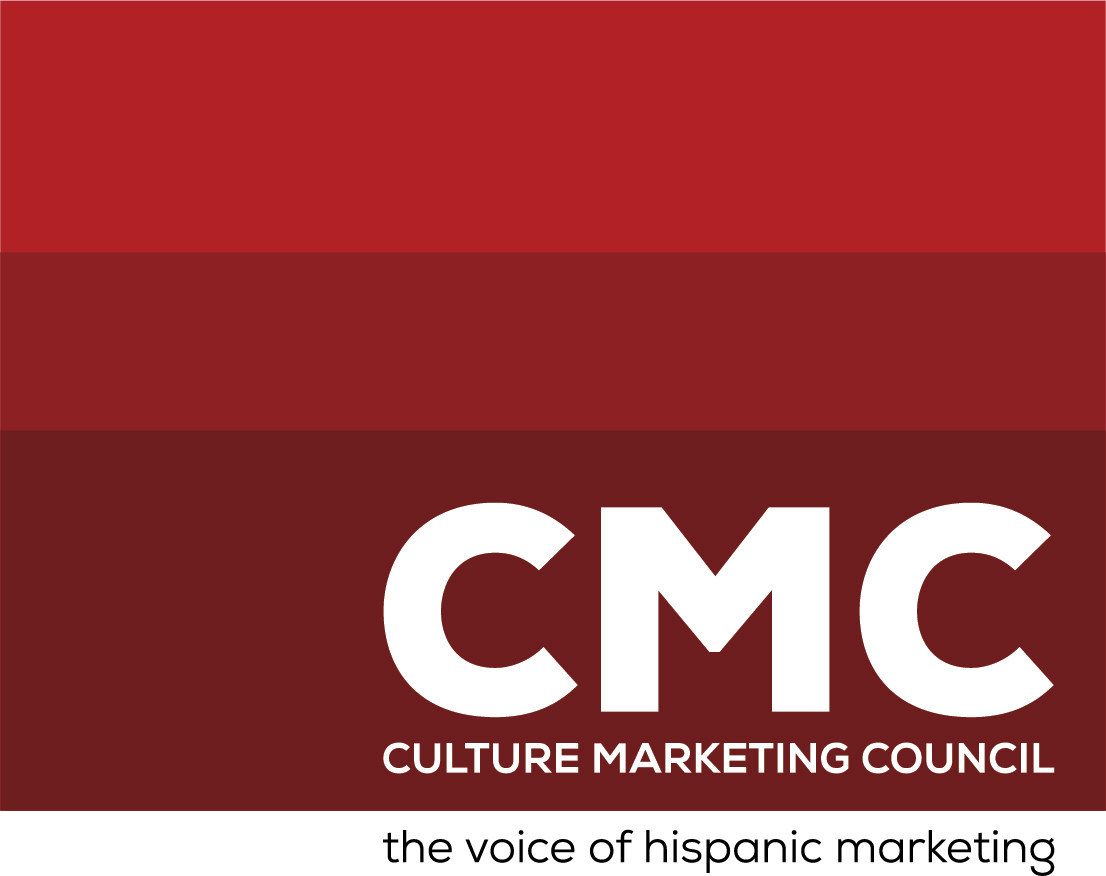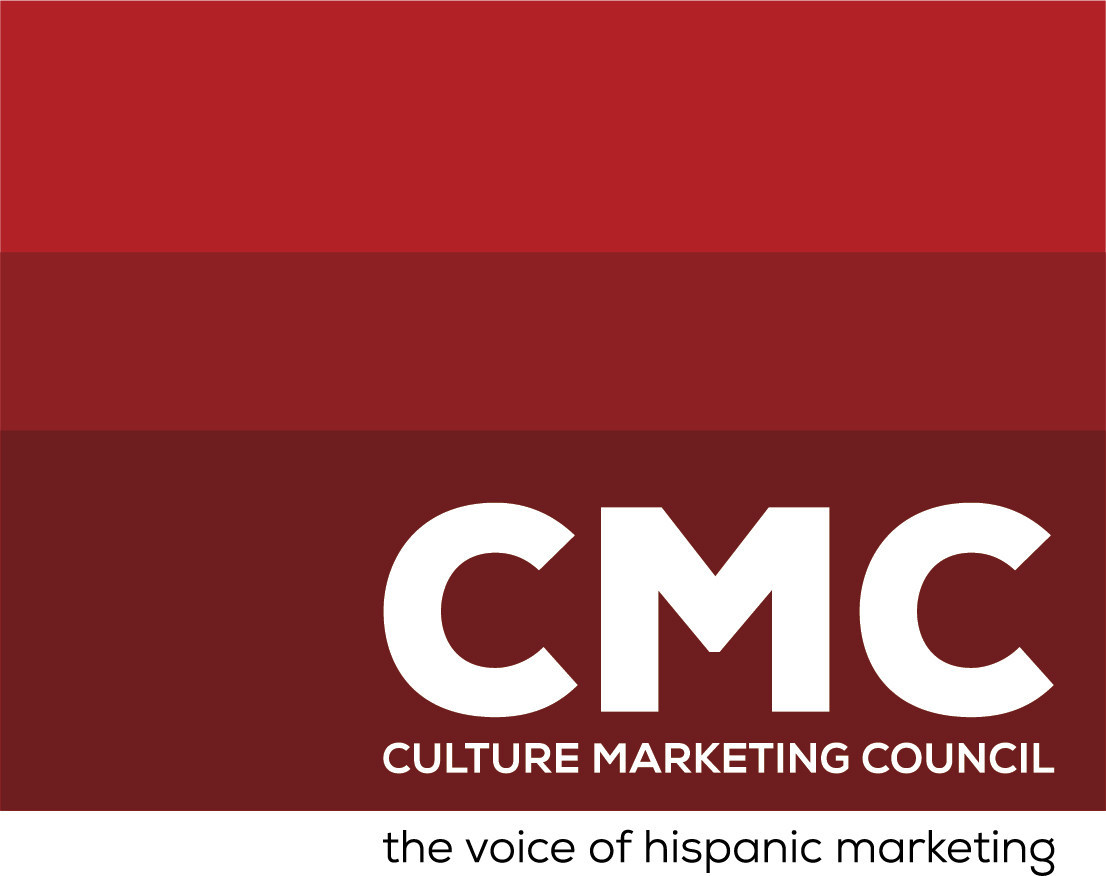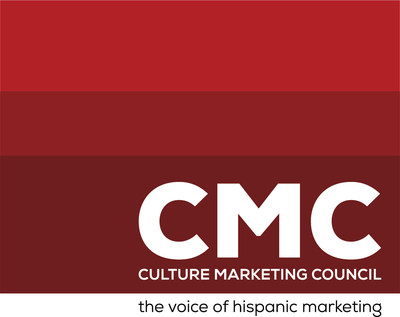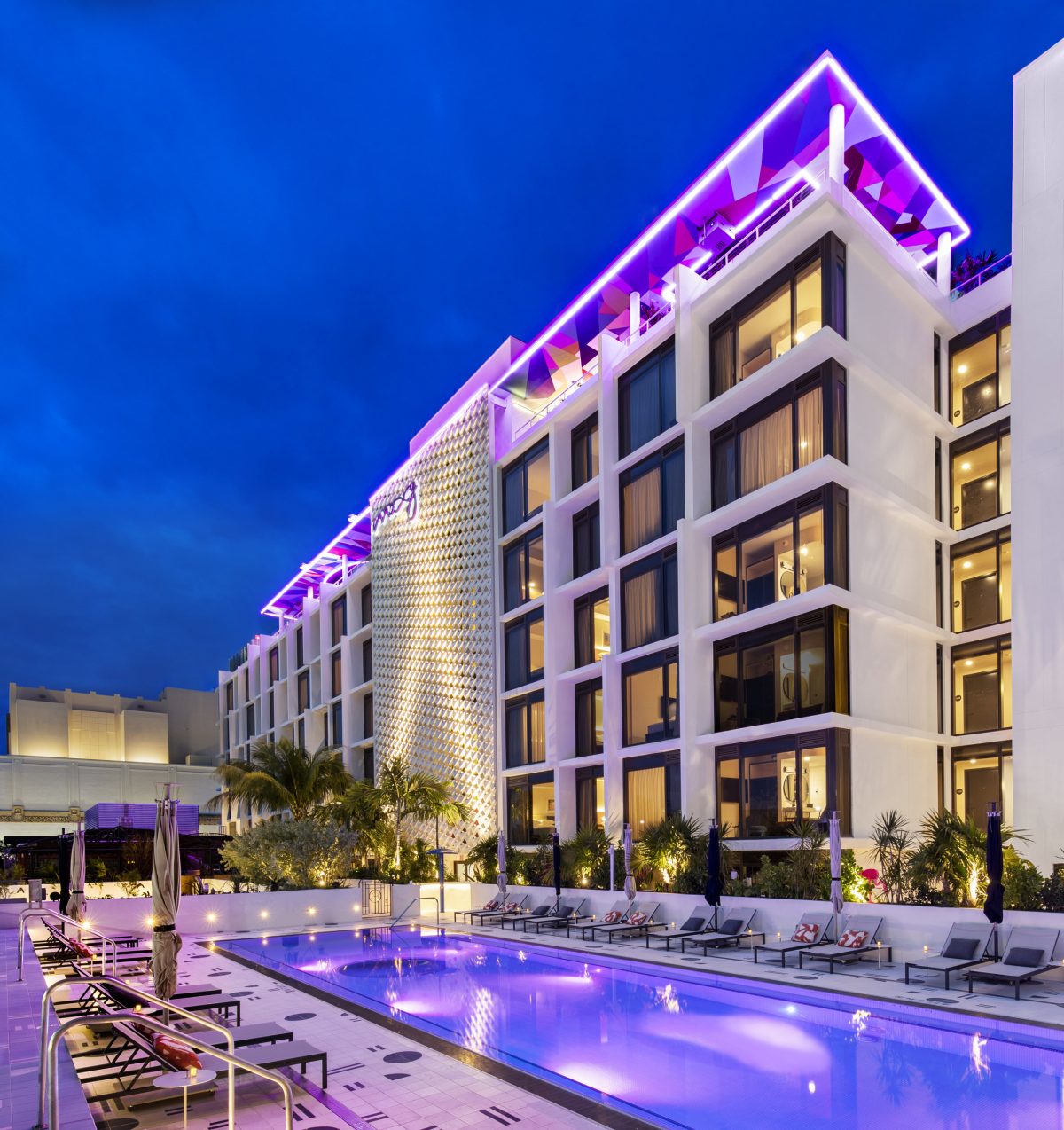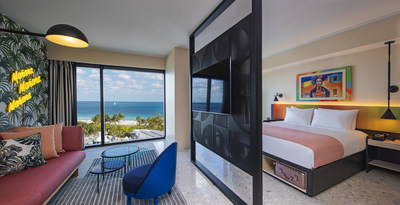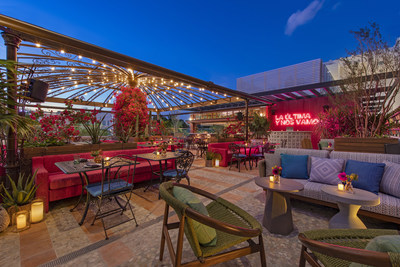MIAMI BEACH, Fla., Feb. 11, 2021 /PRNewswire/ — Miami’s Art Deco District lights up today with the opening of Moxy Miami South Beach. Lightstone, the developers behind three award-winning Moxy hotels in New York City, has created a stylish, playful open-air concept celebrating Miami’s cosmopolitan culture and breezy outdoor living. With a design that blends the glamour of midcentury Havana, the artistry of contemporary Mexico City, and a tropical vibrancy that’s unmistakably Miami, Moxy South Beach offers the dining, drinking, and lounging options that modern travelers crave, all located steps from the sand. The 202-room, eight-story hotel, featuring two pools and the nearby Moxy Beach Club, will be the first resort-style property under Marriott International’s Moxy Hotels® brand, marking a new chapter for hospitality in Miami Beach. Moxy South Beach is upending the way travelers experience hotels in the new year, from contactless check-in to indoor-outdoor lounging, meeting, fitness, and dining spaces.

The highly anticipated opening of Moxy South Beach comes at a pivotal time for Miami Beach, which is repositioning its traditional entertainment district as the new «Art Deco District» — a reimagination of the historic neighborhood with Moxy South Beach at the forefront. Situated at a cultural crossroads, nearby landmarks include the Miami Beach Convention Center, Wolfsonian-FIU Museum, Miami Beach Cinematheque, Fillmore Miami Beach at the Jackie Gleason Theater, and The Webster boutique.
«Opening the hotel during this unprecedented time presented Lightstone with a unique challenge,» says Mitchell Hochberg, Lightstone’s President. «Moxy South Beach isn’t a response to the pandemic, even if it feels like an antidote to it,» says Hochberg. «In a way, the design anticipated the needs of the current environment, so we’re able to accommodate what people are looking for right now: contactless check-in, outdoor spaces, and a do-it-yourself ethos. But we always stayed true to the roots of the Moxy brand, letting guests curate their own experience while they escape reality for a few days in South Beach – and the icing on the cake is that it’s all at an attractive price point. That’s an idea with timeless appeal.»
Design: Celebrating Miami’s Cosmopolitan Culture
Moxy South Beach’s interiors are designed by Rockwell Group (public spaces and bedrooms) and Saladino Design Studios (Serena, Como Como, and Mezcalista), while exteriors are by Kobi Karp Architecture in collaboration with Rockwell Group. Guests can customize their level of interaction as they move from the sanctuary of their bedroom to public spaces designed for socializing on demand. The majority of spaces are open-air and blend seamlessly with indoor areas. Public areas are peppered with private and semi-private enclaves — including poolside cabanas, open-air meeting studios, and sequestered dining tables — that let guests be in the mix and on their own all at once.
Guests enter the hotel through the main walkway on Washington Avenue or the modern porte-cochère at the east entrance. The sun-drenched lobby features several relaxed seating areas with amusements such as a foosball table whose players are vintage pinup dolls brought into the modern era as a women’s soccer team as well as a carnivalesque, Zoltar inspired, pay phone that provides complimentary horoscope readings from resident astrologer @Bassfunkdaddy. The lobby’s three flexible meeting studios and restaurant all converge around a large, open-air courtyard. The space is surrounded by glass walls that can open or close as the weather allows.
The indoor-outdoor spaces continue with a fitness center inspired by nearby Muscle Beach; an outdoor movie screening room on the rooftop; and the Moxy Beach Club on Miami’s famous South Beach. The 72-foot, cabana-lined pool on the second-floor terrace maximizes see-and-be-seen sightlines with tiered lounge seating, benches in the water, and luxury private cabanas. A circular communal shower invites flirtatious interaction, with flamingoes peeking through the surrounding hedge. Swimmers in the pool can peek down directly into the lobby through an eight-foot, see-through cutout at the bottom of the pool, adding up to an exhibitionistic vibe that embodies South Beach. The hotel’s eighth floor rooftop features a shallow lounging pool with chaises submerged in the water and daybeds shaped like lily pads.
The 202 thoughtfully-designed bedrooms include King, Double Queen, or Quad Bunk options, as well as residentially styled suites. All rooms are dressed in vivid Miami hues and bathed in sunlight thanks to floor-to-ceiling windows. Inspired in part by the Clyde Mallory Line, an overnight ferry service between Miami and Havana that operated in the 1940s and ’50s, the rooms resemble ocean liner staterooms with ingenious, space-maximizing storage solutions. Oceanview rooms on higher floors offer unobstructed vistas of the Atlantic, while other rooms feature expansive views of South Beach’s pastel-hued architecture. Bedrooms feature custom art by Miami artist Aquarela Sabol depicting iconic artists — Frida Kahlo, Jean-Michel Basquiat, Pablo Picasso, and Salvador Dalí — visiting South Beach.
«Our design concept for Moxy South Beach celebrates Miami’s uniquely multicultural style, from eclectic Art Deco motifs and Miami Modernism, to Cuban and other Latin American influences,» says Greg Keffer, Partner and Studio Leader at Rockwell Group. «To capture the bright, carefree sophistication of South Beach, we blurred the boundaries between indoor and outdoor amenities, and created light-filled guestrooms that have a feeling of openness.»
Food & Beverage: Design Inspired by Mexico City, Oaxaca & Havana
For the dining and drinking venues, Lightstone tapped the Miami restaurateurs behind the uber-popular Coyo Taco and 1-800-Lucky to create six new exclusive concepts, drawing on Mexican, Caribbean, and local flavors.
Starting at the signature Bar Moxy, guests can simultaneously check-in contact-free and order a handcrafted cocktail. Retro-style swivel barstools surround the oval-shaped bar, while an infinity mirror installation above contains the phone number of El Floridita, the legendary Havana watering hole, paying tribute to Miami’s Cuban heritage.
Facing Bar Moxy is Los Buenos, the all-day bodega and taco stand, which will dish up tacos on hand-pressed tortillas and burrito bowls, as well as breakfast items and a variety of specialty coffee drinks by La Colombe, including super-strong and sweet Cuban-style cafecitos. Los Buenos will also sell a curated selection of clothing, accessories, magazines, and classic Miami gifts sourced from local purveyors.
On the second floor, an open-air rooftop restaurant and bar, Serena, channels the enchanting rooftop and patio restaurants of Oaxaca and Mexico City. Located on a vibrant, lushly planted terrace, Serena has a laid-back yet sophisticated vibe that’s like none other in Miami. Lounge and table seating — plus an enticing menu of shareable dishes and hand-crafted cocktails — create an inviting atmosphere for sunset cocktails and nibbles, leisurely lunches and dinners, or buzzy brunches accompanied by live music.
The hotel’s eighth-floor rooftop bar, aptly named The Upside, has a shallow lounging pool, alfresco movie screening area, whimsical seating options, and 360-degree panoramic views of the ocean and Miami Beach. Available exclusively to hotel guests and for private events, The Upside will become a coveted space for parties, film screenings, and pop-ups. A sinuous canopy on the rooftop provides shade during the day, while showcasing a brilliant, geometric mural by New York artist Edward Granger when illuminated at night. The piece is a nod to the thriving street art scene in nearby Wynwood and acts as a colorful beacon for the hotel.
Opening April 2021 is Como Como, a marisqueria (seafood restaurant) and raw bar centered around the «fuego,» a wood- and charcoal-fired grill utilizing ancient Mexican techniques. The open-cooking concept allows diners to watch the culinary process firsthand, while a «tequila tree» sculpture theatrically dispenses the agave spirit from hand-blown glass spheres. The restaurant also serves diners in its outdoor courtyard, a lush space layered with colored tilework, hanging plants, and a sign reading «Besos De Mezcal,» hinting at the night to come.
Also opening in April is a sexy and mysterious mezcal lounge, Mezcalista, accessed either from the back of the marisquería or through a discreet entrance on Washington Avenue. Guests will sip and savor an assortment of over 100 types of rare mezcals and tequilas in this seductively lit, catacomb-like lounge.
«We’re creating concepts that give people a lot of choice,» says Sven Vogtland, co-founder of Coyo Taco Group. «You can head up to Serena for a sunset drink and a bite, sit down for an elegant meal at Como Como, or enjoy the intimate energy of Mezcalista while the DJ spins. Or you can have all three in one night. We’re providing a variety of vibes and environments, which in turn will attract a real intermingling of different types of guests.»
Programming: The Hotel as a Cultural Crossroads
An energetic mix of cultural and lifestyle programming will roll out at Moxy South Beach, including several exclusive partnerships. Adapting the notable #SWEATatMoxy program from its sister properties in New York, Moxy South Beach will have guests working up a sweat with «Glutes Check» classes from local fitness guru Starr Hawkins, taking part in restorative sessions from NYC-based BeRevolutionarie, or joining a Surfing Bootcamp from Surfrider Foundation, an organization dedicated to the protection and enjoyment of the world’s ocean waves and beaches. The Surfrider Foundation collaboration continues with Silent Disco beach cleanups and surf-inspired movie screenings on the rooftop. The rooftop will also host biannual screenings in partnership with the Miami Film Festival.
On the rhythm front, Prism Creative and Tigre Sounds are curating a weekly live music series with emerging musicians. The hotel is also partnering with heralded genre-bending Miami orchestra Nu Deco Ensemble to share frequent live streams of their sold-out concerts. These partnerships continue on the small screen via Moxy South Beach’s in-room TV channels, including Nu Deco Ensemble’s «Orchestra Reimagined» performances. Hotel guests will also receive special perks at cultural institutions like the Bass Museum, Rubell Museum, Superblue Miami, and the Pérez Art Museum Miami (PAMM).
Launching opening weekend – just in time for Valentine’s day – is the Foreplay – Mezcal, Oysters, Vinyls & Dice Package. In true Moxy fashion, the playful package is complete with all the essentials for a romantic evening out and a naughty night in. Guests receive a dozen oysters, two signature mezcal cocktails at Serena, and a Sexy 6 Dice Game for impromptu foreplay fun. The free in-room record player with «aphrodisiac album collections» is a mood-boosting enhancement.
COVID-19 Safeguards & Enhanced Sanitation
In the wake of the COVID-19 pandemic, Moxy South Beach is utilizing the most advanced cleaning and sanitizing systems available. A fresh AtmosAir system will continuously monitor, disinfect, and purify the indoor air, using a cutting-edge bipolar ionization technology that filters out airborne viruses, molds, and bacteria. Additionally, Asepticare® cleaner, used across the hotel, properly deodorizes and eliminates allergens, germs, mold, viruses, bacteria, and mildew. High-touch items such as elevator buttons and stair handrails will be consistently and frequently disinfected using hospital-grade disinfectants. An on-property Cleanliness Captain enforces Marriott’s 200-plus cleaning protocols through its Global Cleanliness Council and Commitment to Clean, which include frequent disinfection of all hotel surfaces, rigorous room cleanliness standards, limited capacities, and new social distancing practices. All Moxy South Beach crewmembers are required to take temperature checks before entering the building, and all will receive certification on COVID-19 safety and sanitation protocols from the on-site Cleanliness Captain.
Moxy South Beach is located at 915 Washington Avenue, Miami Beach, FL 33139. For more information or to book, visit moxysouthbeach.com. Rates start at $159 per night.
About Moxy South Beach
A stylish and playful celebration of Miami’s cosmopolitan culture, Moxy South Beach marks a new chapter for hospitality in Miami Beach. The first resort-style property for the Moxy brand, the 202-room, eight-story hotel is located steps from the sand on Washington Avenue. It offers the dining, drinking, lounging, and co-working options that modern, design-focused travelers crave — all at an attractive price point. Interiors by Rockwell Group and Saladino Design Studios mix the glamour of midcentury Havana, the artistry of contemporary Mexico City, and a tropical vibrancy that’s unmistakably Miami. Bedrooms, dressed in vivid Miami hues and drenched in Florida sunshine thanks to floor-to-ceiling windows, feature rain showers and ingenious, space-maximizing storage solutions. Six new dining and drinking venues, developed by the founders of Miami’s uber-popular Coyo Taco and 1-800-LUCKY, include Como Como, a marisquería and raw bar; Mezcalista, a sexy mezcal lounge; Serena, an open-air rooftop restaurant and bar; Los Buenos, a taco stand/bodega in the lobby, complemented by Bar Moxy, which does double duty as a social hub and check-in area; and The Upside, a rooftop bar on the eighth floor exclusively for hotel guests and private events. Multiple indoor-outdoor spaces include a ground floor courtyard; a 72-foot, cabana-lined pool; an indoor-outdoor fitness center; an outdoor movie screening room on the rooftop; and an exclusive beach club on Miami’s famous South Beach. Moxy South Beach is Lightstone’s first Moxy hotel opening outside of New York City, following the successful launches of Moxy Times Square, Moxy Chelsea, and Moxy East Village.
About Moxy Hotels
Moxy offers a playful hotel experience for the young at heart. With more than 70 properties open across North America, Europe, and Asia Pacific, Moxy breaks the rules of a conventional hotel stay across the globe. The nontraditional experience starts with check-in at Bar Moxy and can be felt throughout the social public spaces, like the Lounge and Library, and the small but smart bedrooms. Moxy provides stylish, industrial design and sociable service at an attractive price point, so that guests can splurge on the experiences that matter most to them during their travels. Moxy strives to cultivate fun and spontaneity in all aspects of one’s stay, forever giving its guests permission to Play On #atthemoxy. For more information, visit www.moxyhotels.com and join the fun #atthemoxy on Instagram. Moxy is proud to participate in Marriott Bonvoy, the global travel program from Marriott International. The program offers members an extraordinary portfolio of global brands, exclusive experiences on Marriott Bonvoy Moments, and unparalleled benefits including free nights and Elite status recognition. To enroll for free or for more information about the program, visit MarriottBonvoy.com.
About Lightstone
Lightstone, founded by David Lichtenstein, is one of the largest and most diversified privately held real estate companies in the United States. Lightstone is active in 24 states across the country, developing, managing and investing in all sectors of the real estate market, including residential, hospitality, commercial, and retail. With 127 existing properties, Lightstone’s over $6.5 billion portfolio currently includes over 4 million square feet of office, retail and industrial commercial properties, over 15,000 residential units, and 4,100 hotel keys. Lightstone also owns over 12,000 land lots across the country.
Headquartered in New York City, Lightstone continues to grow its development portfolio with over $3.5 billion currently under development in the residential and hospitality sectors. Moxy South Beach is Lightstone’s first Moxy hotel opening outside of New York City, following the award-winning openings of Moxy Times Square, Moxy Chelsea, and Moxy East Village. Moxy Downtown Los Angeles and New York’s Moxy Lower East Side and Moxy Williamsburg are also under construction and opening in 2022.
Media Contacts:
Madelyn Alster
The Brandman Agency
212.683.2442
moxy@brandmanagency.com
Vanessa Menkes
Vanessa Menkes Communications
305.490.4494
vanessa@vanessamenkes.com
Christine Lin
Marriott International
212.365.8363
christine.lin@marriott.com
 View original content to download multimedia:http://www.prnewswire.com/news-releases/moxy-south-beach-debuts-as-a-stylish-playful-celebration-of-miamis-cosmopolitan-culture-setting-a-new-paradigm-for-leisure-travel-301226275.html
View original content to download multimedia:http://www.prnewswire.com/news-releases/moxy-south-beach-debuts-as-a-stylish-playful-celebration-of-miamis-cosmopolitan-culture-setting-a-new-paradigm-for-leisure-travel-301226275.html
SOURCE Marriott International, Inc.
![]() View original content to download multimedia:http://www.prnewswire.com/news-releases/i-would-drive-500-miles-consumers-are-willing-to-travel-longer-distances-to-get-the-cars-they-want-during-covid-19-according-to-edmunds-301226947.html
View original content to download multimedia:http://www.prnewswire.com/news-releases/i-would-drive-500-miles-consumers-are-willing-to-travel-longer-distances-to-get-the-cars-they-want-during-covid-19-according-to-edmunds-301226947.html


